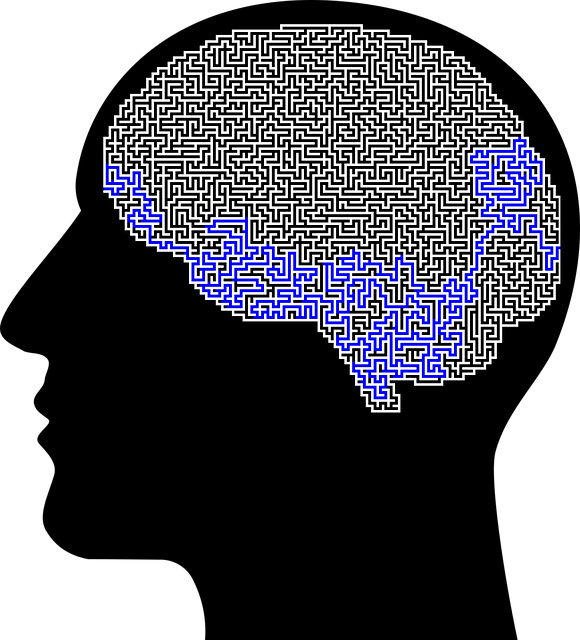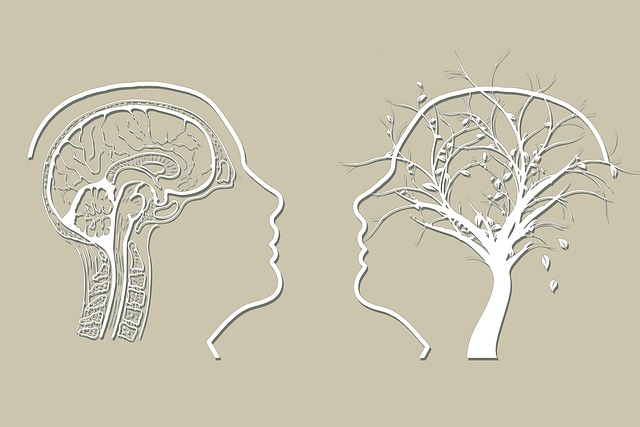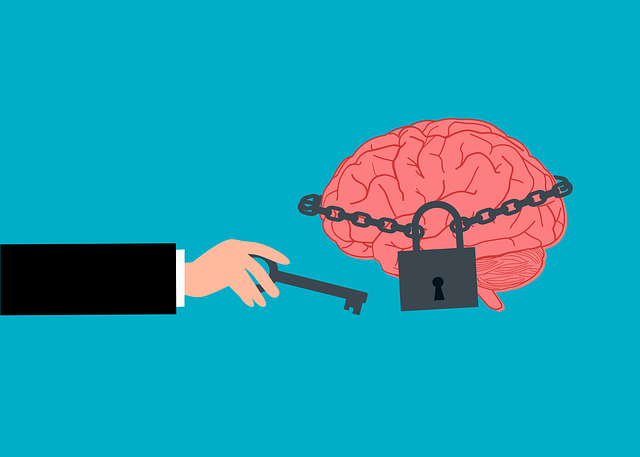Trauma and bipolar disorder significantly impact young children's development. Early intervention through tailored therapies like play therapy and trauma-focused cognitive behavioral therapy is vital. Accurate diagnosis by child and adolescent psychiatry specialists enables effective treatment, improving long-term outcomes for children with bipolar disorder. Specialized services include evidence-based therapy, compassion cultivation, social skills training, case management, and family education. Creating a safe, nurturing environment with soft lighting, calming spaces, and open communication aids in emotional regulation and positive thinking for young patients managing bipolar disorder.
“Trauma support services are pivotal in addressing the unique challenges faced by young children with bipolar disorder, a condition often exacerbated by traumatic experiences. This article delves into the multifaceted approach to healing, exploring key components of effective treatment. From understanding trauma’s profound impact on childhood development to identifying bipolar symptoms and the crucial role of specialized therapy, we uncover strategies for supportive care. Additionally, we emphasize the importance of case management, family involvement, and creating trauma-informed environments, highlighting the integrated services necessary for holistic healing in young minds.”
- Understanding Trauma and Its Impact on Young Children
- Identifying Bipolar Disorder in Childhood: Symptoms and Diagnosis
- The Role of Therapy in Supporting Traumatized Young Children with Bipolar Disorder
- Specialized Services for Effective Treatment: Case Management and Family Involvement
- Creating a Safe Space: Environmental Considerations for Trauma-Informed Care
Understanding Trauma and Its Impact on Young Children

Trauma can have profound effects on young children, shaping their emotional and behavioral development. It’s crucial to understand that trauma isn’t just a one-time event; it’s a response to an experience or series of experiences that threaten safety, whether physical, emotional, or psychological. For young minds, these experiences can disrupt the brain’s development, particularly in regions responsible for regulating emotions and stress. This can manifest as difficulties in various aspects of life, including school performance, social interactions, and mental health.
Early intervention is key to supporting young children who have experienced trauma. Therapy tailored for this age group, such as play therapy or trauma-focused cognitive behavioral therapy, leverages the child’s natural curiosity and communication styles. These therapeutic approaches incorporate mind over matter principles to help children develop healthy coping mechanisms, regulate their moods using effective communication strategies, and process traumatic memories in a safe environment. For children struggling with bipolar disorder, these interventions can be even more critical, as they often coincide with heightened vulnerability to trauma’s impact.
Identifying Bipolar Disorder in Childhood: Symptoms and Diagnosis

Identifying Bipolar Disorder in childhood is a nuanced process that requires careful observation and professional expertise. This mental health condition, often diagnosed later in life, can manifest early on with distinct symptoms. Unlike typical mood swings, bipolar disorder involves extreme emotional states that persist for extended periods, alternating between mania or hypomania and depression. Young children experiencing bipolar disorder might display intense irritability, rapid talking, decreased need for sleep during manic episodes, alongside frequent sadness, withdrawal, and changes in appetite during depressive phases.
Accurately diagnosing bipolar disorder in young children is essential as early intervention can significantly improve long-term outcomes. Healthcare providers specializing in child and adolescent psychiatry conduct comprehensive assessments, often incorporating interviews with parents or caregivers, direct interactions with the child, and detailed records of behavioral observations. A thorough risk assessment for mental health professionals is vital to ensure they have the necessary tools and training, including cultural competency training, to navigate the complex presentation of bipolar disorder in children. This specialized knowledge boosts their confidence in making accurate diagnoses and providing effective therapy for young children with bipolar disorder.
The Role of Therapy in Supporting Traumatized Young Children with Bipolar Disorder

Trauma support services for young children with bipolar disorder often include specialized therapy approaches that cater to their unique needs. These children have experienced both the challenges of bipolar disorder and the impact of trauma, requiring a tailored intervention strategy. Therapy plays a pivotal role in helping these young individuals process their traumatic experiences and manage their mental health effectively.
One such therapeutic approach is evidence-based therapy, which focuses on addressing specific symptoms and behaviors associated with trauma and bipolar disorder. Techniques like compassion cultivation practices can help build resilience and foster a sense of safety, boosting the child’s confidence. Additionally, social skills training is integral to enhancing their ability to interact and connect with peers, mitigating potential social isolation stemming from their mental health struggles. Through these therapeutic interventions, young children with bipolar disorder can develop coping strategies, improve emotional regulation, and eventually thrive in both personal and social settings.
Specialized Services for Effective Treatment: Case Management and Family Involvement

Specialized services play a pivotal role in effectively treating young children with bipolar disorder. Case management is a key component, where dedicated professionals coordinate and personalize therapy plans tailored to each child’s unique needs. This involves close collaboration with families, who are integral to the recovery process. By involving parents or guardians in treatment decisions and providing education on bipolar disorder, healthcare providers can foster a supportive environment at home, enhancing the effectiveness of therapy.
Integrating family involvement into trauma support services is essential for holistic healing. It not only strengthens the child’s coping mechanisms but also teaches them healthy ways to navigate emotional challenges. Moreover, this approach can mitigate burnout among healthcare providers by implementing effective community outreach programs that raise awareness about mental health issues and promote anxiety relief strategies, such as mindfulness techniques and support groups.
Creating a Safe Space: Environmental Considerations for Trauma-Informed Care

Creating a safe and nurturing environment is paramount when providing trauma-informed care, especially for young children suffering from bipolar disorder. The physical space should be designed to promote feelings of security and comfort, minimizing potential triggers that could exacerbate emotional distress. Soft lighting, calming colors, and comfortable seating can contribute to an atmosphere conducive to therapy. Additionally, incorporating elements of nature or using natural materials can help regulate emotions, as research suggests exposure to greenery and natural light positively impacts mental health.
This environment should facilitate open communication and encourage expression of feelings. Incorporating play areas or art stations can provide alternative avenues for young children to convey their experiences non-verbally, enhancing their emotional regulation skills. Furthermore, ensuring the space is free from distractions and clutter allows for focused interactions between therapists and clients, fostering positive thinking and boosting confidence during therapy sessions for bipolar disorder management.
Trauma support services tailored for young children with bipolar disorder are essential to fostering healing and growth. By combining therapy, specialized case management, and trauma-informed care environments, we can provide comprehensive assistance that addresses both the mental health challenges and unique needs of these vulnerable individuals. This multi-faceted approach ensures that young children receive the necessary tools to navigate their emotional landscapes and thrive in a supportive setting.














